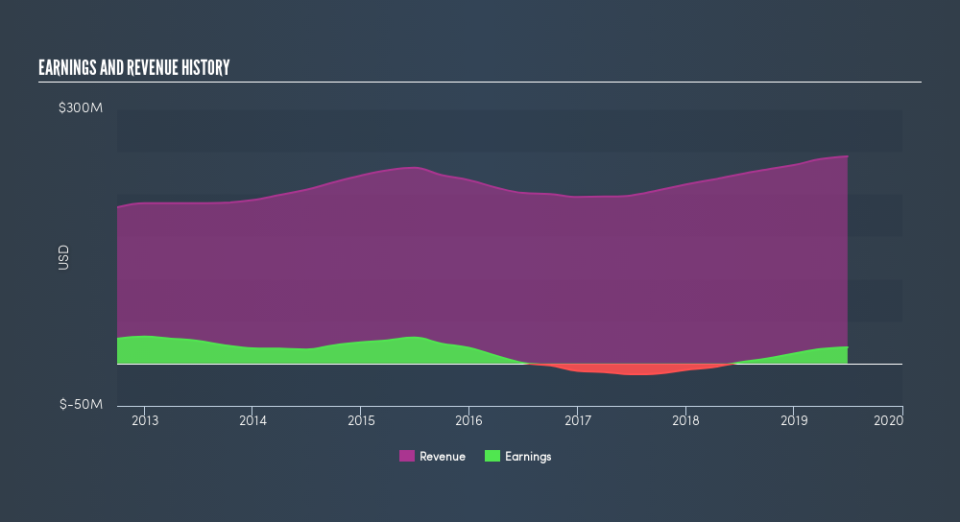Does The Radware Ltd. (NASDAQ:RDWR) Share Price Tend To Follow The Market?

Anyone researching Radware Ltd. (NASDAQ:RDWR) might want to consider the historical volatility of the share price. Modern finance theory considers volatility to be a measure of risk, and there are two main types of price volatility. The first type is company specific volatility. Investors use diversification across uncorrelated stocks to reduce this kind of price volatility across the portfolio. The other type, which cannot be diversified away, is the volatility of the entire market. Every stock in the market is exposed to this volatility, which is linked to the fact that stocks prices are correlated in an efficient market.
Some stocks see their prices move in concert with the market. Others tend towards stronger, gentler or unrelated price movements. Some investors use beta as a measure of how much a certain stock is impacted by market risk (volatility). While we should keep in mind that Warren Buffett has cautioned that 'Volatility is far from synonymous with risk', beta is still a useful factor to consider. To make good use of it you must first know that the beta of the overall market is one. Any stock with a beta of greater than one is considered more volatile than the market, while those with a beta below one are either less volatile or poorly correlated with the market.
Check out our latest analysis for Radware
What RDWR's beta value tells investors
Zooming in on Radware, we see it has a five year beta of 0.89. This is below 1, so historically its share price has been rather independent from the market. If history is a good guide, owning the stock should help ensure that your portfolio is not overly sensitive to market volatility. Beta is worth considering, but it's also important to consider whether Radware is growing earnings and revenue. You can take a look for yourself, below.
Does RDWR's size influence the expected beta?
Radware is a small cap stock with a market capitalisation of US$1.2b. Most companies this size are actively traded. Small cap stocks ofthen have a higher beta than the overall market. However, small companies can also be strongly impacted by company specific developments, which can move the share price in ways that are unrelated to the broader market. That could explain why this one has a low beta value.
What this means for you:
Since Radware is not heavily influenced by market moves, its share price is probably far more dependend on company specific developments. It could pay to take a closer look at metrics such as revenue growth, earnings growth, and debt. This article aims to educate investors about beta values, but it's well worth looking at important company-specific fundamentals such as Radware’s financial health and performance track record. I urge you to continue your research by taking a look at the following:
Future Outlook: What are well-informed industry analysts predicting for RDWR’s future growth? Take a look at our free research report of analyst consensus for RDWR’s outlook.
Past Track Record: Has RDWR been consistently performing well irrespective of the ups and downs in the market? Go into more detail in the past performance analysis and take a look at the free visual representations of RDWR's historicals for more clarity.
Other Interesting Stocks: It's worth checking to see how RDWR measures up against other companies on valuation. You could start with this free list of prospective options.
We aim to bring you long-term focused research analysis driven by fundamental data. Note that our analysis may not factor in the latest price-sensitive company announcements or qualitative material.
If you spot an error that warrants correction, please contact the editor at editorial-team@simplywallst.com. This article by Simply Wall St is general in nature. It does not constitute a recommendation to buy or sell any stock, and does not take account of your objectives, or your financial situation. Simply Wall St has no position in the stocks mentioned. Thank you for reading.

 Yahoo Finance
Yahoo Finance 
